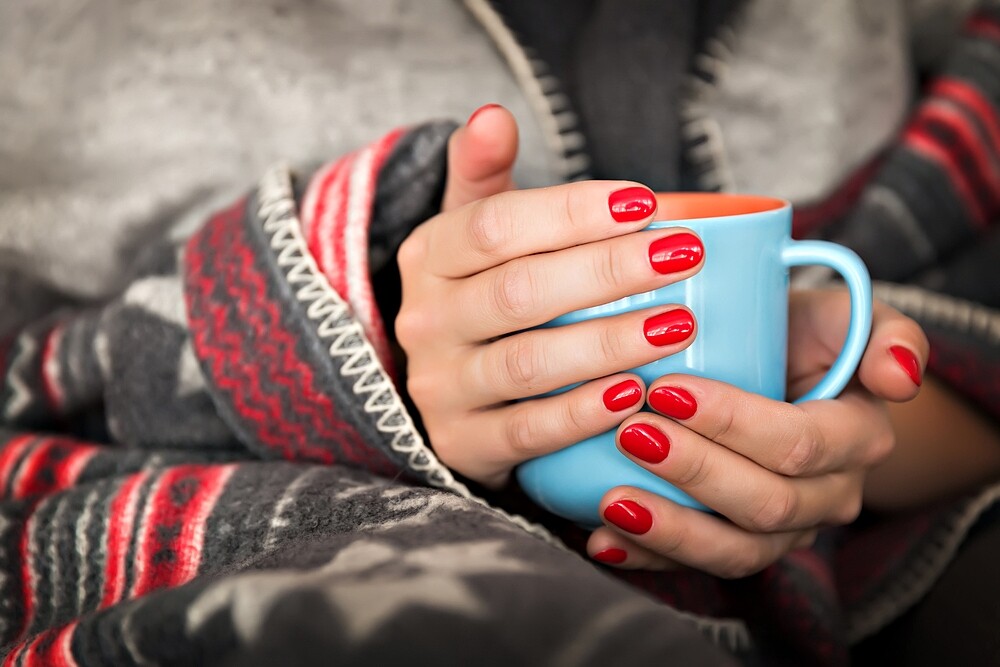You have cold hands all the time and in the office you would like to throw yourself under a warm blanket? We’ve put together a few tips for you to help you get warm again quickly!
How do cold hands develop?
Cold hands are above all a symptom that our blood circulation is not optimal. Cold is often the trigger: the blood vessels of the outermost limbs, i.e. in the fingers and feet, constrict first. When the cold subsides, the limbs are supplied with blood again because the vessels dilate again – and the cold fingers are a thing of the past. By the way: the skin on the fingers is particularly thin, which also favours cold hands.
What causes cold hands?
If cold hands occur only occasionally, for example because it is frosty outside, this is no cause for concern. However, anyone who frequently has ice fingers, regardless of the outside temperature, should seek out the cause with a doctor. The following reasons can cause cold hands:
- General circulatory disorders
- Smoking
- Alcohol consumption
- Lack of exercise
- Mineral and / or nutrient deficiency
- Sleep deprivation
- Heart failure
- Low blood pressure
- Hypothyroidism
- Raynaud’s syndrome (the disease causes bloodlessness especially in the fingers)
- Stress
- Depressive moods
- Anxiety disorders
- Hormone and metabolic disorders
- Thromboses
- Starving
- Certain drugs
What helps against cold hands?
The following can help against cold hands and feet:
- Fill a tub with very warm water, add a few drops of rheumatism bath (drugstore), bathe fingers and feet for ten minutes each. If children often have cold feet, have their feet measured in a shoe shop. Often the shoes have then become too small unnoticed.
- Herbal remedies with ginkgo or garlic can promote blood circulation.
- Kicking stones” helps against cold feet. To do this, fill a plastic tub with round, smooth pebbles (approx. 4 cm in diameter) and pour warm water over them so that the soles of your feet just get wet. Now walk on the spot for five minutes – this massages the reflex zones.
- Reduce stimulants such as cigarettes and alcohol or, ideally, leave them out altogether to avoid cold fingers.
- Regular exercise, i.e. at least three times a week for 30 minutes each, e.g. cycling or swimming.

